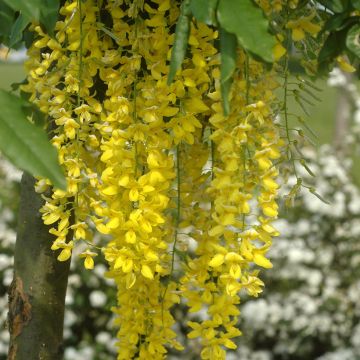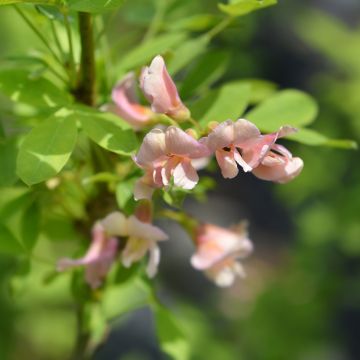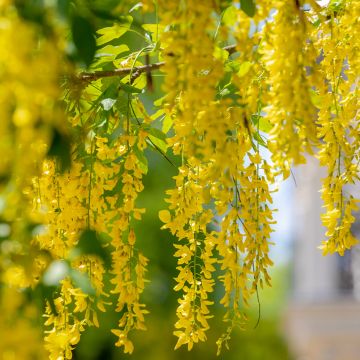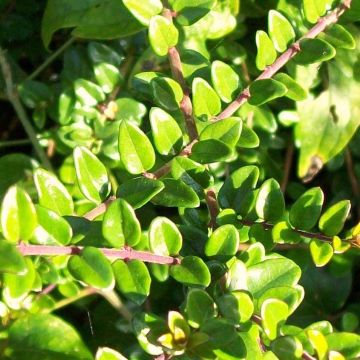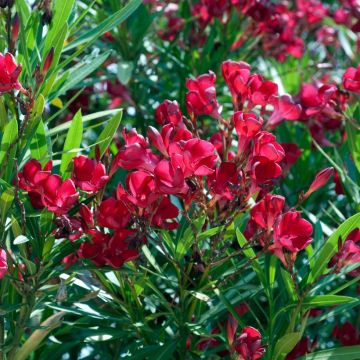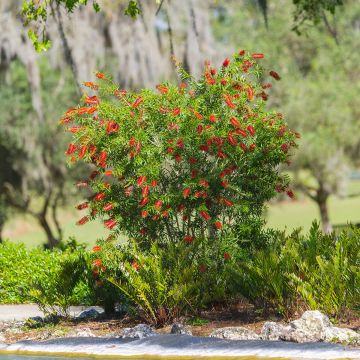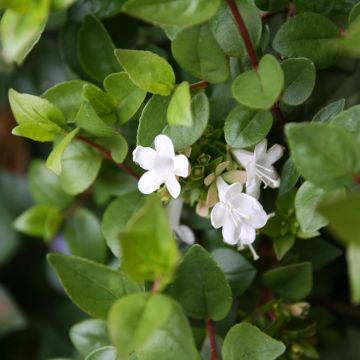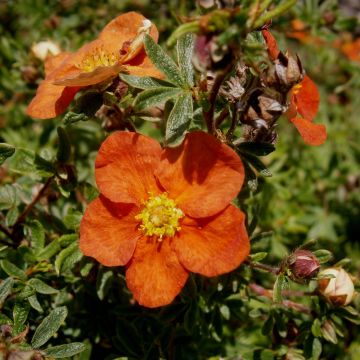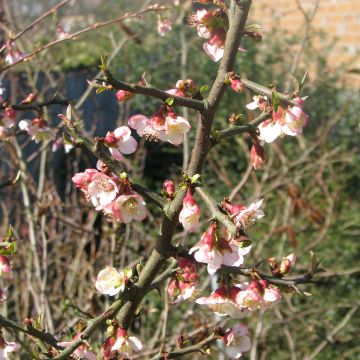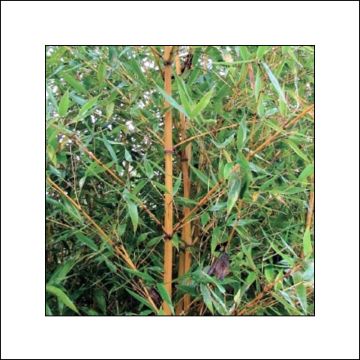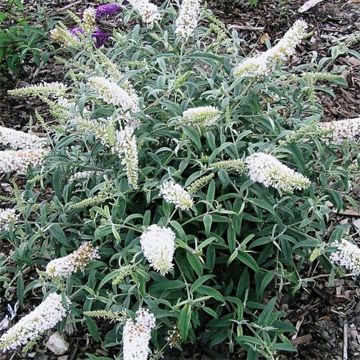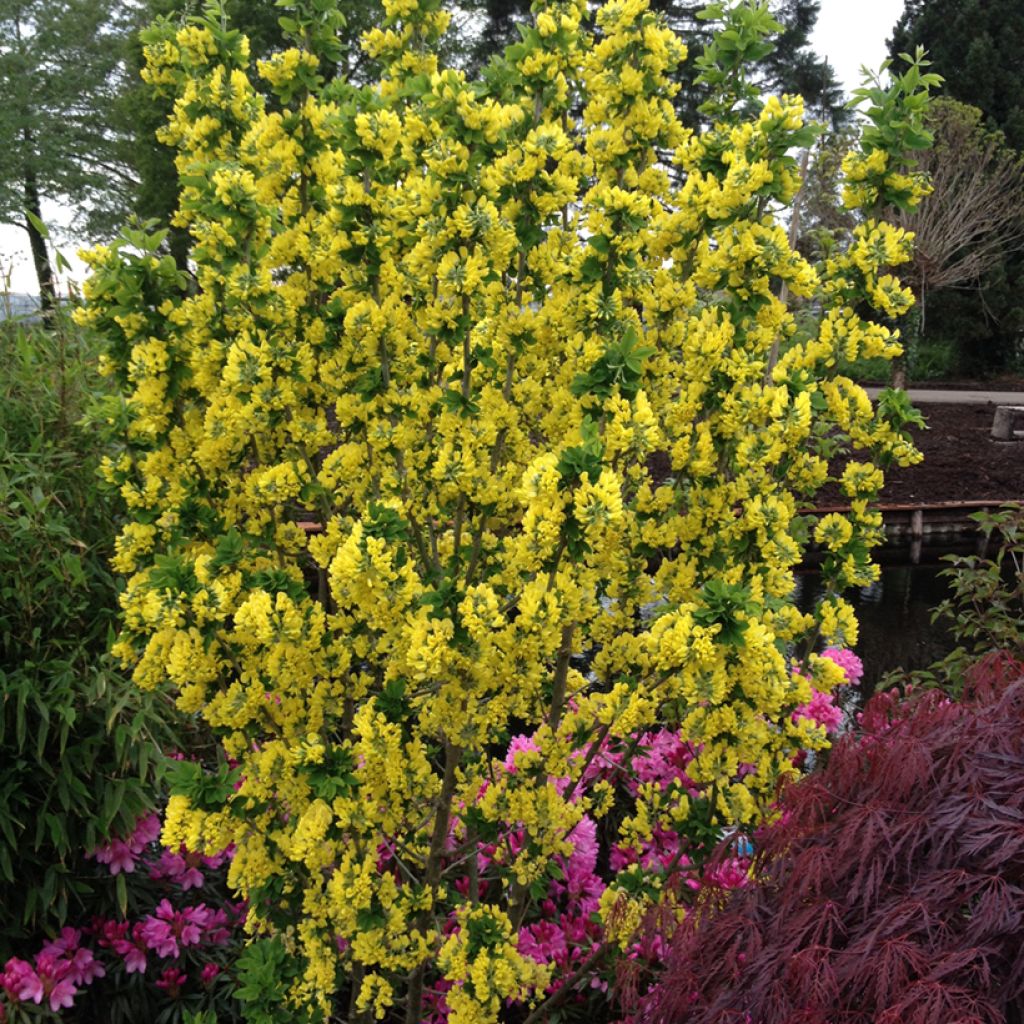

Laburnum anagyroides Sunspire
Laburnum anagyroides Sunspire
Laburnum anagyroides Sunspire
Common Laburnum, Golden Chain, Bean Tree, Golden Rain
Special offer!
Receive a €20 voucher for any order over €90 (excluding delivery costs, credit notes, and plastic-free options)!
1- Add your favorite plants to your cart.
2- Once you have reached €90, confirm your order (you can even choose the delivery date!).
3- As soon as your order is shipped, you will receive an email containing your voucher code, valid for 3 months (90 days).
Your voucher is unique and can only be used once, for any order with a minimum value of €20, excluding delivery costs.
Can be combined with other current offers, non-divisible and non-refundable.
Why not try an alternative variety in stock?
View all →This plant carries a 24 months recovery warranty
More information
We guarantee the quality of our plants for a full growing cycle, and will replace at our expense any plant that fails to recover under normal climatic and planting conditions.
Would this plant suit my garden?
Set up your Plantfit profile →
Description
Laburnum anagyroides 'Sunspire' is a variety of clustered cytisus that is interesting for its narrow and compact, fastigiate habit, well suited to small gardens. This deciduous bush is adorned with elegant clover-like foliage and is covered in late spring with short clusters of golden flowers that attract bees with their fragrance. It is easily grown in the sun, in any well-drained soil.
Laburnum anagyroides 'Sunspire' is a recent horticultural selection, often classified in the subspecies alschingeri, naturalised in Tyrol, northern Italy, and Croatia. It belongs to the fabaceae family, formerly known as legumes, just like wisteria.
Laburnum anagyroides 'Sunspire' has a slow growth, with an upright, spreading, narrow habit. At the age of 15, it usually measures 3m in height, with the top of its crown measuring 1.50m wide. Between May and late June, depending on the climate, it produces short clusters of fragrant, nectar-rich golden yellow flowers. These clusters are more compact than those of classic varieties, but they are produced in large numbers. They are followed by pods covered in brown hairs containing black seeds. The deciduous, bright green foliage, with a hairy underside, has compound leaves divided into 3 ovate, 3 to 7cm long leaflets. Its smooth bark is green when young and cracks and turns grey with age.
Hardy to -29°C, Laburnum anagyroides 'Sunspire' grows in any well-drained soil, even poor and slightly chalky. However, it does not tolerate winter waterlogging and is sensitive to prolonged drought. Provide it with a sunny location for good flowering. Place it as a solitary specimen or plant two subjects on either side of the terrace. It can also be integrated into a flowering hedge with mock oranges, hybrid deutzia 'Mont Rose', or small lilacs like 'Palibin' or 'Josée'.
Caution: all parts are toxic if ingested, especially the seeds.
Report an error about the product description
Plant habit
Flowering
Foliage
Botanical data
Laburnum
anagyroides
Sunspire
Fabaceae
Common Laburnum, Golden Chain, Bean Tree, Golden Rain
Cultivar or hybrid
Other Laburnum
View all →Planting and care
Laburnum anagyroides 'Sunspire' will thrive in full sun, in ordinary but well-drained soil. It does not tolerate stagnant moisture or severe droughts. Add coarse sand and compost to the bottom of the planting hole if your soil is heavy and clayey. Mulch the base in summer to save on watering and maintain some moisture. Pruning is not essential but you can prune to balance the branches after flowering. Keep the pods away from children, as they are highly toxic if ingested. The flowers should not be confused with the flowers of the false acacia tree, which are edible (fritters).
Planting period
Intended location
Care
This item has not been reviewed yet - be the first to leave a review about it.
Similar products
Haven't found what you were looking for?
Hardiness is the lowest winter temperature a plant can endure without suffering serious damage or even dying. However, hardiness is affected by location (a sheltered area, such as a patio), protection (winter cover) and soil type (hardiness is improved by well-drained soil).

Photo Sharing Terms & Conditions
In order to encourage gardeners to interact and share their experiences, Promesse de fleurs offers various media enabling content to be uploaded onto its Site - in particular via the ‘Photo sharing’ module.
The User agrees to refrain from:
- Posting any content that is illegal, prejudicial, insulting, racist, inciteful to hatred, revisionist, contrary to public decency, that infringes on privacy or on the privacy rights of third parties, in particular the publicity rights of persons and goods, intellectual property rights, or the right to privacy.
- Submitting content on behalf of a third party;
- Impersonate the identity of a third party and/or publish any personal information about a third party;
In general, the User undertakes to refrain from any unethical behaviour.
All Content (in particular text, comments, files, images, photos, videos, creative works, etc.), which may be subject to property or intellectual property rights, image or other private rights, shall remain the property of the User, subject to the limited rights granted by the terms of the licence granted by Promesse de fleurs as stated below. Users are at liberty to publish or not to publish such Content on the Site, notably via the ‘Photo Sharing’ facility, and accept that this Content shall be made public and freely accessible, notably on the Internet.
Users further acknowledge, undertake to have ,and guarantee that they hold all necessary rights and permissions to publish such material on the Site, in particular with regard to the legislation in force pertaining to any privacy, property, intellectual property, image, or contractual rights, or rights of any other nature. By publishing such Content on the Site, Users acknowledge accepting full liability as publishers of the Content within the meaning of the law, and grant Promesse de fleurs, free of charge, an inclusive, worldwide licence for the said Content for the entire duration of its publication, including all reproduction, representation, up/downloading, displaying, performing, transmission, and storage rights.
Users also grant permission for their name to be linked to the Content and accept that this link may not always be made available.
By engaging in posting material, Users consent to their Content becoming automatically accessible on the Internet, in particular on other sites and/or blogs and/or web pages of the Promesse de fleurs site, including in particular social pages and the Promesse de fleurs catalogue.
Users may secure the removal of entrusted content free of charge by issuing a simple request via our contact form.
The flowering period indicated on our website applies to countries and regions located in USDA zone 8 (France, the United Kingdom, Ireland, the Netherlands, etc.)
It will vary according to where you live:
- In zones 9 to 10 (Italy, Spain, Greece, etc.), flowering will occur about 2 to 4 weeks earlier.
- In zones 6 to 7 (Germany, Poland, Slovenia, and lower mountainous regions), flowering will be delayed by 2 to 3 weeks.
- In zone 5 (Central Europe, Scandinavia), blooming will be delayed by 3 to 5 weeks.
In temperate climates, pruning of spring-flowering shrubs (forsythia, spireas, etc.) should be done just after flowering.
Pruning of summer-flowering shrubs (Indian Lilac, Perovskia, etc.) can be done in winter or spring.
In cold regions as well as with frost-sensitive plants, avoid pruning too early when severe frosts may still occur.
The planting period indicated on our website applies to countries and regions located in USDA zone 8 (France, United Kingdom, Ireland, Netherlands).
It will vary according to where you live:
- In Mediterranean zones (Marseille, Madrid, Milan, etc.), autumn and winter are the best planting periods.
- In continental zones (Strasbourg, Munich, Vienna, etc.), delay planting by 2 to 3 weeks in spring and bring it forward by 2 to 4 weeks in autumn.
- In mountainous regions (the Alps, Pyrenees, Carpathians, etc.), it is best to plant in late spring (May-June) or late summer (August-September).
The harvesting period indicated on our website applies to countries and regions in USDA zone 8 (France, England, Ireland, the Netherlands).
In colder areas (Scandinavia, Poland, Austria...) fruit and vegetable harvests are likely to be delayed by 3-4 weeks.
In warmer areas (Italy, Spain, Greece, etc.), harvesting will probably take place earlier, depending on weather conditions.
The sowing periods indicated on our website apply to countries and regions within USDA Zone 8 (France, UK, Ireland, Netherlands).
In colder areas (Scandinavia, Poland, Austria...), delay any outdoor sowing by 3-4 weeks, or sow under glass.
In warmer climes (Italy, Spain, Greece, etc.), bring outdoor sowing forward by a few weeks.






























